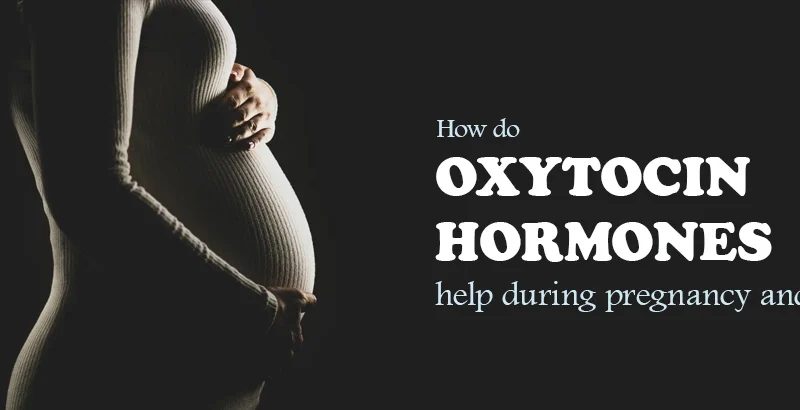Oxytocin (love hormones) is an extraordinary hormone that also functions as a neurotransmitter. These hormones act as chemical messengers in the brain while getting attracted and attached romantically. It further helps in pregnancy, makes the uterus contract during labour and promotes breastmilk production after the baby’s birth. Once the baby is born it is the same hormones that develop parental trust between a mother and her child.
However, here the focus is on the function of oxytocin during pregnancy and childbirth. Find out how:
Oxytocin in Pregnancy
Once you embark on the journey of motherhood, the level of oxytocin secretion increases gradually. Along with this, the number of oxytocin receptors increases. How?
- Oxytocin hormones influence the growth of oestrogen hormones which further support the placental function as well as the development of the foetal organs.
- Oxytocin further supports the growth hormones.
- The growth hormone (GH)-insulin-like growth factor (IGF) axis, is the main factor in placental and foetal development. By increasing growth hormone levels, the placenta and foetus exchange oxygen and nutrients, resulting in increased blood flow.
- Furthermore, the insulin growth factor influenced by oxytocin impacts gestational weight gain.
Oxytocin in Labour
Oxytocin levels are at their peak in the early stage of pregnancy, and it keeps on soaring by the time you reach the end of your pregnancy. The oxytocin hormones naturally prepare the body for giving birth (both physically and emotionally). How? Here’s how:
- The oxytocin hormones impact your tendency to nest at home. The period of nesting (as early as 24 weeks), which peaks in the third trimester, makes you organise all the rooms in the house, declutter, babyproof and pack the hospital bags before you go to the hospital for the delivery of your baby.
- Oxytocin is indeed closely linked to the mental and behavioural aspects of bonding, particularly during pregnancy. An increase in oxytocin levels from early to late pregnancy is associated with a stronger maternal-fetal bond. This surge not only enhances emotional connections but also fosters a sense of trust and care that is essential for both prenatal and postnatal development. The hormone plays a crucial role in nurturing feelings, helping mothers develop a protective relationship with their baby even before birth.
- During labour the pressing of the foetal head against the cervix sends important nerve impulses to the brain. This signals the pituitary gland to release oxytocin into the bloodstream, which is vital for childbirth.
- The oxytocin hormones travel to the uterus and stimulate contractions, helping to facilitate the birthing process. There are chances that you feel the contractions more at night when you’re trying to battle your sleep. This happens because melatonin (a natural sleep–regulating chemical) works in tandem with oxytocin thus enhancing and regulating contractions at night. In this way, you can carry out vaginal delivery.
Oxytocin and Lactation
By passing through the various stages of pregnancy and labour, oxytocin promotes lactation after the baby’s birth. How? Here are a few factors included:
- Oxytocin quickly produces prolactin hormones and helps in the “letdown reflex” or the “milk ejection reflex.” It makes the breast milk flow while you are feeding the baby. This causes the muscles in the breasts to contract and force milk into the ducts.
- The letdown reflex is powerfully influenced by a mother’s sensations and emotional connection to her baby. The reflex becomes conditioned when she touches, smells, sees her little one, hears their cries or even thinks lovingly about them.
- Oxytocin at the same time helps in reducing bleeding after childbirth by reducing uterine contraction.
- After the delivery of the baby, the oxytocin hormones are responsible for reducing postpartum stress and depression.
- The oxytocin hormones create a beautiful bond between you and your newborn, physically and emotionally.



